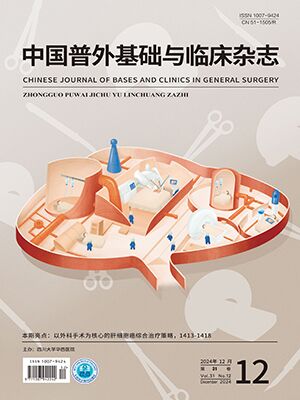Objective To examine the effect of zinc finger protein A20 on regeneration of small-for-sized liver allograft, graft rejection and recipient rat survival time.
Methods Small-for-sized liver transplantation with 30% partial liver allograft was performed by using a b-rejection combination rat model of DA (RT1a) to Lewis (RT1l) rats. The rats were grouped into rAdEasy-A20 treatment group (A20 group), the control empty Ad vector rAdEasy treatment group (rAdEasy group) and PS control treatment group (PS group). Ex vivo gene transfer in donor liver graft was performed through portal vein infusion. Animals were assessed for survival days, expression of A20 in liver graft, liver graft regeneration, hepatocyte apoptosis, graft rejection, NF-κB activation and ICAM-1 mRNA expression in liver graft sinusoidal endothelial cells (LSECs), number of liver graft infiltrating mononuclear cells (LIMCs) and the subproportion of NK/NKT cells, and serum IFN-γ level.
Results Survival day of A20 group rats was prominently longer than that of PS group rats and rAdEasy group rats (P=0.001 8), whereas survival day of rAdEasy group rats was remarkably shorter than that of PS group rats (P=0.001 8). Regeneration of the small-for-sized liver allograft was markedly augmented by A20, BrdU labelling index of hepatocyte on postoperative day 4 was significantly increased in the A20 group compared with the PS group and rAdEasy group (P<0.01). Hepatocyte apoptosis on postoperative day 4 was significantly inhibited by A20 (P<0.01). On postoperative day 4, histologic examination revealed a mild rejection in the A20 group but a more severe rejection in the PS and rAdEasy groups. NF-κB activity and ICAM-1 mRNA expression in LSECs on postoperative day 1 were notably suppressed by A20 overexpression. Flow cytometry analysis showed a marked downregulation of LIMCs number by A20, including more prominent decrease in the subproportion of NK/NKT cells on postoperative day 1 and 4, respectively (P<0.05). Serum IFN-γ level on postoperative day 4 was also significantly suppressed by A20 overexpression (P<0.05).
Conclusion These data suggest that A20 could effectively promote small-for-sized liver allograft regeneration, suppresses rejection and prolong survival days of recipient rats. These effects of A20 could be related to an inhibition of LSECs activation, suppression of infiltration of LIMCs and the subpopulations such as NK cells and NKT cells into liver graft, and inhibition of hepatocyte apoptosis.
Citation: XU Mingqing,YAN Lnan,GOU Xinghua,PENG Fangxing,LI Dehua,HAN Lei,HUANG Lanying,HUANG Yingchun,HU Haiyang. Zinc Finger Protein A20 Promotes Regeneration of Small-for-Sized Liver Allograft and Suppresses Rejection in Rats. CHINESE JOURNAL OF BASES AND CLINICS IN GENERAL SURGERY, 2008, 15(8): 572-578. doi: Copy
Copyright © the editorial department of CHINESE JOURNAL OF BASES AND CLINICS IN GENERAL SURGERY of West China Medical Publisher. All rights reserved




